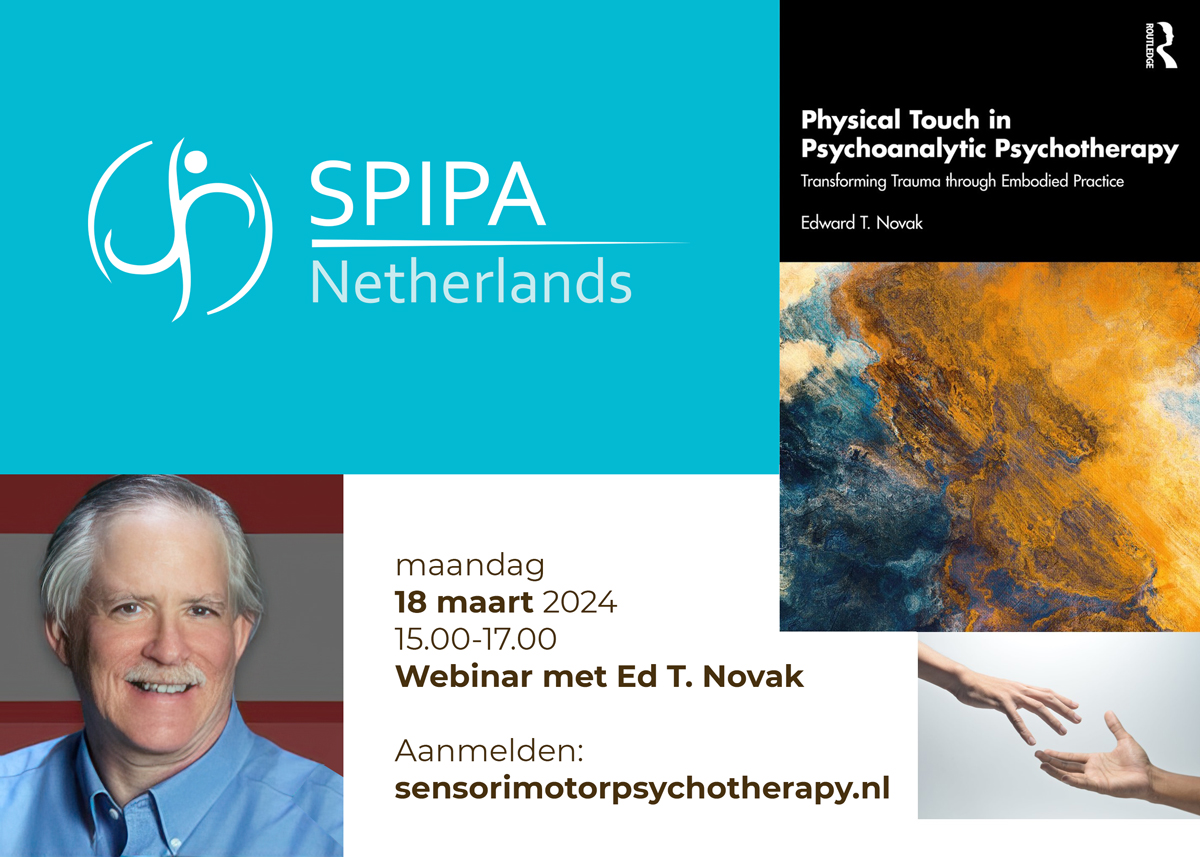We are happy to announce an upcoming SPIPA webinar featuring Edward T. Novak, psychoanalyst based in Ohio (USA).
For over thirty years Ed Novak has been involved in both body therapy and transactional analysis. In his clinical practice, he developed ways of integrating these three areas of expertise into therapy with individuals who experienced physical and sexual abuse and other forms of embodied trauma. Novak believes that physical touch can add something essential to therapy for these individuals.
A primary emphasis in Novak’s work is how physical touch deepens both transference and countertransference in ways that does not lead to boundary violations, but when used in an informed and disciplined manner, help patients reintegrate mind and body. In his model, Novak distinguishes 4 forms of physical touch that, according to him, improve the therapeutic relationship, and provide opportunities to work with transference/countertransference and corrective emotional experiences:
- Pass-by touch, e.g. handshakes and hugs
- Completion touch, often near the end of a session
- Containing & informing touch
- Somatic mastery and modulation
"Touch has a powerful impact in human contact. It can deepen contact with each other and with ourselves. But it can also be very threatening and elicit potent transference and countertransference.
As Sensorimotor Psychotherapists who use touch with clients, we need to understand these dynamics so that we can work nonviolently and attuned. It behooves therapists to learn about the use of touch in clinical practice so that it can be used effectively to support our clients.
Touch is a potent intervention that when used in the right way can facilitate deep healing, completion of movements, and repair attachment failures."
Pat Ogden
February 2024
Novak also distinguishes between three types or 3 phases of body therapy: Regressive, Transitional and Progressive. These phases often overlap. According to Novak, you must first have a good overview of the patient’s traumatized ego states and the therapist needs to know these ego states well before starting to work with physical touch. Clients with (early) childhood trauma would especially benefit from this work because of the corrective effects which create a fundamentally new experience that can be processed in treatment.
Novak is a pioneer in the field, because of his progressive, non-avoidant attitude in this area. He believes that body-oriented work is necessary, and depending on the phase and needs of the client, touch also has a place.
During this webinar Edward Novak will introduce his model of physical touch and embodied work. The origins, and significance of using appropriate (informed and disciplined) safe touch, available evidence, and clinical utility. And how to approach the ethics and disciplinary risks of the work. He will illustrate his work by sharing case descriptions and is open to any relevant questions. He will also spend time addressing many of the engrained fears and prohibitions around touch in our profession and offer new counterarguments to them, including the often-unrecognized issues of withholding touch from patients.
AANMELDEN (Niet meer mogelijk)
Language: English
Date: Monday 18th of March from 15 -17 pm AMS time
Costs: € 20,- SPIPA members, or € 30,- regular fee
Annulering tot 11 maart 2024 onder inhouding van administratiekosten.
De Zoomlink voor deelname sturen we kort voor het seminar toe.
Hosted by SPIPA the Dutch association for sensorimotor psychotherapy
On behalf of the organising committee,
Fieke Klein Wassink, Pim van Dun, Anneke Vinke, Simona Karbouniaris

